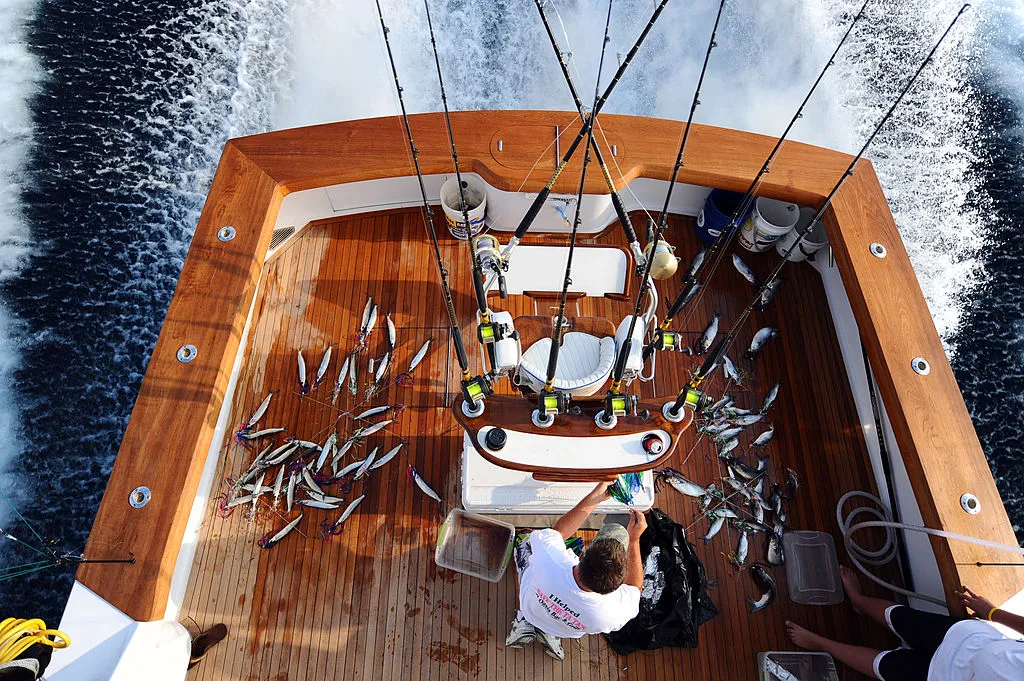While the Tour de France yellow jersey is one of sport’s most fabled prizes, there was more than just prestige up for grabs at the 112th edition of the race in 2025.
Alongside the yellow, green, polka dot and white jerseys, the Tour de France handed out around €2.57 million in cash prizes.
This included a €500,000 overall prize for champion Tadej Pogačar (UAE Team Emirates - XRG) – not to mention his extra winnings from his four stage and polka dot jersey victories.
Riders can earn money from all the main categories, as well as on categorised climbs, intermediate sprints and for finishing in the first 160 classified riders in the race.
All individual Tour de France teams have different formulas for sharing the prize money, but usually it's put into a pot and divided between every rider (and often staff) on the team at the end of the race. Cycling is a team sport with individual winners, after all.
Here’s how the 2025 Tour de France prize money was broken down.
Tour de France stage winner prize money

The winner of each stage earned €11,000 in 2025, as well as a place on the podium at the end of the day.
Second place was worth €5,500, while the rider in third raked in €2,800.
Every rider down to 20th place (€300) earned a share of the €28,650 on offer each day.
Here’s the full breakdown for each individual stage.
- €11,000
- €5,500
- €2,800
- €1,500
- €830
- €780
- €730
- €670
- €650
- €600
- €540
- €470
- €440
- €340
- €300
Tour de France yellow jersey prize money

If winning the stage also earned a rider the yellow jersey, there was an extra €500 up for grabs, with the same prize on offer for each day a rider wore the maillot jaune.
That, however, is small fry compared to the main prize pot for the general classification.
The rider in the yellow jersey on the final podium won €500,000, with Pogačar taking the spoils. The prize increased in 2016 and has remained the same since.
Second place went to Jonas Vingegaard, earning him €200,000, with Florian Lipowitz – who also won the young rider competition – taking home €100,000 in third.
Each rider from fourth to 19th on the general classification steadily receives less money, and everyone from 20th place to 160th is awarded €1,000 for completing the roughly 3,500km course.
Here’s a full breakdown of the prize money awarded to the 10 overall fastest riders in 2024.
- €500,000 (Tadej Pogačar)
- €200,000 (Jonas Vingegaard)
- €100,000 (Florian Lipowitz)
- €70,000 (Oscar Onley)
- €50,000 (Felix Gall)
- €23,000 (Tobias Halland Johannessen)
- €11,500 (Kévin Vauquelin)
- €7,600 (Primož Roglič)
- €4,500 (Ben Healy)
- €3,800 (Jordan Jegat)
Tour de France King of the Mountains prize money

A day in the King of the Mountains jersey was worth €300 in 2025, while the top eight in the final mountains classification were rewarded at the end of the race.
The overall winner in 2025, Pogačar, received €25,000, while the second finisher, Vingegaard, got €15,000.
Here’s a full breakdown of the prize money awarded to the top three finishers in the mountains classification in 2025.
- €25,000 (Tadej Pogačar)
- €15,000 (Jonas Vingegaard)
- €10,000 (Lennny Martinez)
Tour de France climbs prize money
It’s not all about the general classification and the polka dot jersey – each climb at the Tour de France has a prize on offer at the top.
For hors catégorie and first-category climbs, the first three over the summit earn prize money; on second-category ascents, it's the top two, and on third and fourth-cat climbs, it's only the first rider over.
The HC climbs and summit finishes were worth €800 to the first across, €450 to the second and €300 to the third. The 10 category-one mountains offered €650, €400 and €150 respectively.
| | HC | 1st category | 2nd category | 3rd category | 4th category |
|---|---|---|---|---|---|
| 1st | €800 | €650 | €500 | €300 | €200 |
| 2nd | €450 | €400 | €250 | n/a | n/a |
| 3rd | €300 | €150 | n/a | n/a | n/a |
For second-category mountains or hills, the first rider across received €500 and the second €250, while it was €300 for crossing a third-category climb first and €200 to be the first over a fourth-category ascent.
Riders can also boost their pay packets further by being the first across the highest point of the race. In 2025, the Souvenir Henri Desgrange, as the prize is known, was awarded to the first rider to crest the 2,304m La Loze. That added €5,000 to Ben O'Connor's kitty.
The Souvenir Jacques Goddet (€5,000) is given to the first rider to reach the top of the Col du Tourmalet in the Pyrenees. The prize went to Lenny Martinez in 2025.
Tour de France points classification prize money

As with the polka dot jersey, a day in the green jersey in 2025 was worth €300, with a €25,000 top prize for winning the points classification overall.
Jonathan Milan took the prize for 2025, and spent much of the race in green.
The top eight in the final points classification all win prizes. The 2025 ranking looked as follows:
- €25,000 (Jonathan Milan)
- €15,000 (Jonas Abrahamsen)
- €10,000 (Biniam Girmay)
- €4,000 (Anthony Turgis)
- €3,500 (Tobias Halland Johannessen)
- €3,000 (Tim Naberman)
- €2,500 (Matteo Jorgenson)
- €2,000 (Laurenz Rex)
That’s exactly in line with the mountains classification.
Each intermediate sprint – one on each of the 19 road stages – was worth €1,500, €1,000 and €500 for the first three riders through, respectively.
These prizes are often swallowed up by the breakaway, with the sprinters keeping their powder dry for the sprint stage finishes.
Tour de France young rider classification prize money

A €300 prize is also up for grabs for each day in the white jersey as the best young rider (in other words, for the 2025 race, those riders born on or after 1 January 2000).
In addition, the highest-placed young rider on each stage can claim a €500 daily prize.
In 2020, at 21 years old, Pogačar became the youngest Tour de France winner since 1904, as well as securing the white and polka-dot jerseys. He won the same three jerseys in 2021, but was only the best young rider in 2022 and 2023.
The top four riders in the final young-rider classification also win prizes.
- €20,000 (Florian Lipowitz)
- €15,000 (Oscar Onley)
- €10,000 (Kévin Vauquelin)
- €5,000 (Ben Healy)
Tour de France team classification prize money
The top-placed team on each stage – calculated by the cumulative time of each team’s three fastest finishers – claims a further €2,800 in prize money.
Those daily times are all added up to form the overall team classification, and the top five teams at the end of the race also win cash prizes.
Most aggressive rider classification (combativity prize)

There is one final prize at the Tour de France, with race judges picking their most aggressive rider in each of the first 18 road stages (every stage except the two time trials and the final stage) to win the combativity prize.
The previous day’s winner can be spotted by their red race number on the following stage. They will also be €2,000 richer.
At the end of the race, a Super Combatif award is handed out – worth €20,000.
Richard Carapaz took the prize in 2024, with EF taking the spoils once again with Ben Healy in 2025.
How does Tour de France prize money compare to other sporting events?

While €500,000 (approximately £434,000) for winning the yellow jersey is nothing to be sniffed at, the amount on offer for winning cycling’s greatest race is low compared to other sports.
Bryson DeChambeau earned $4.3 million for winning golf's 2024 US Open.
In horse racing, the Saudi Cup winner is awarded $20 million. Most of that goes to the horse's owner, but the winning jockey can expect a 10 per cent share.
The men’s and women’s singles tennis champions at Wimbledon received £3 million each in 2025.
At sea angling's 2022 White Marlin Open, Jeremy Duffie netted a world-record-setting $4,536,000 for landing a 77.5lb white marlin.
Still, the most fabled prize in cycling is not something to turn your nose up at – prize money or not.
